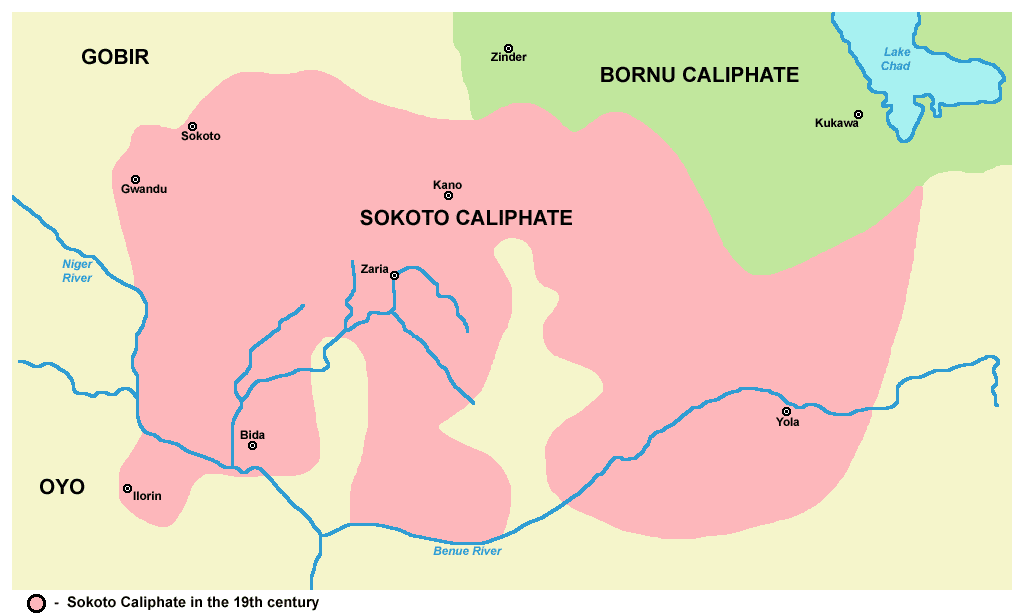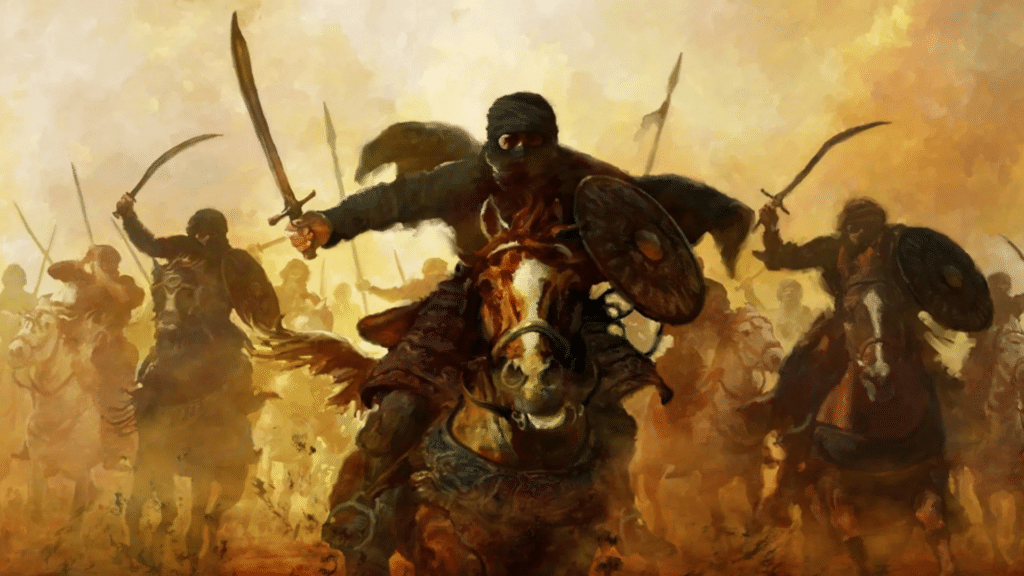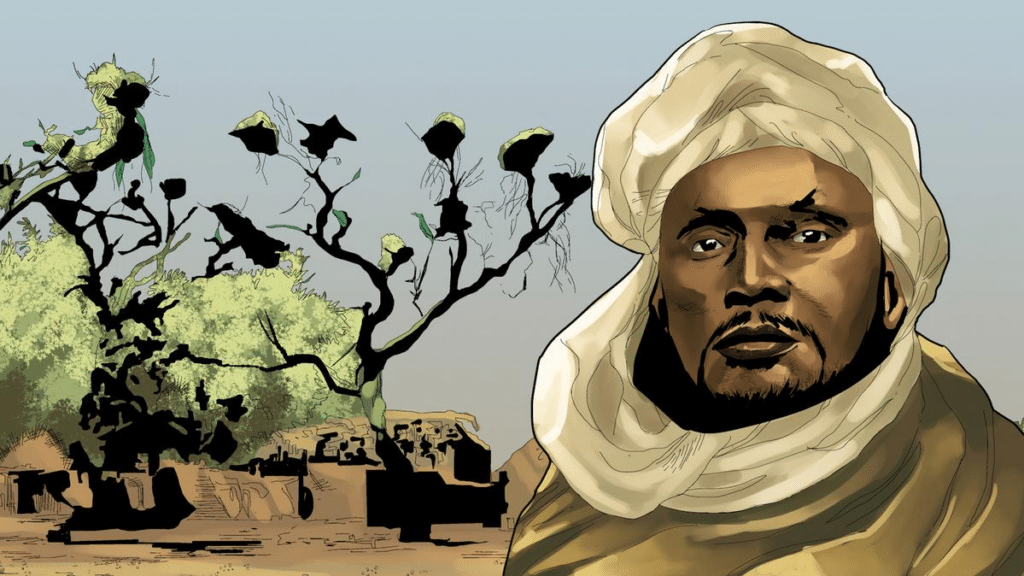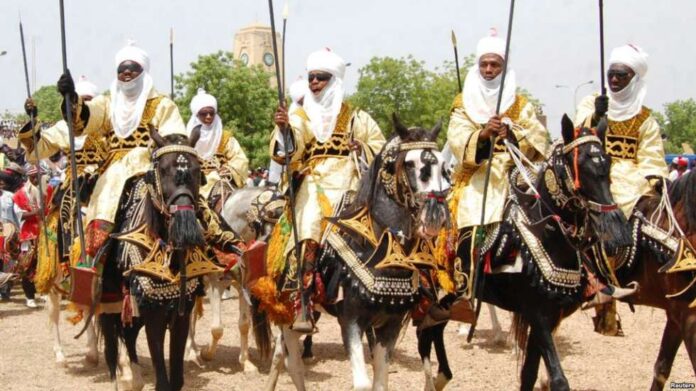The history of the Hausa people is long and eventful.
While the ancestors of the Hausa are unknown, one idea suggests that they were an amalgamation of native peoples united by the Hausa language, while another version explains their existence as the result of a migration of people from the southern Sahara Desert.
Follow us as we take a journey to learn the history of the Hausa people.
History of the Hausa People: Who are the Hausas?
The Hausa phrase Kasar hausa, which means “country of the Hausa language,” is where the name Hausaland originates. However, the region was also home to other ethnic groups like the Tuareg, Fulbe, and Zabarma.
Throughout the history of the Hausa people, only at the beginning of the 16th century CE was the word “Hausa” used to refer to the people. Instead, they referred to themselves by the individual city-state or kingdom to which they belonged.
In what is now northern Nigeria, Hausaland was situated in the Sahel area of north-central Africa, between the Niger River and Lake Chad. And between the Sahara Desert in the north and the Savannah grassland in the south, there is a semi-arid region of land known as the Sahel.
In particular, Hausaland extended from the Air Mountains in the north to the Jos Plateau in the south and from Borno in the east to the Niger Valley in the west.
In the history of the Hausa people, between 1000 and 1300 CE, the Hausa-speaking population of this area built settlements.
- READ ALSO:
- History of the Yoruba People: A Rich Tapestry of Culture
- Igbo People: History, Culture, Religion
- Nigerian Heroes and Heroines and Their Achievements
Origin of the Hausa People

Although the precise origins of the Hausa towns are unknown, theories suggest that a migration of peoples from the southern Sahara who abandoned their own lands as a result of the region’s increased drying out founded new settlements in what would later be called Hausaland.
Alternative theories contend that across the history of the Hausa people, they originated from the western shore of Lake Chad and moved to this new, fertile land when the lake shrank as a result of the same climatic changes that affected the Sahara. From there, they then eventually spread to the region’s immediate north and west.
Unfortunately, neither of these two theories has any historic backing as of yet.
As a result, there is a third theory, according to which the Hausa were local indigenous people who had not immigrated from any place. The absence of a migratory tradition in Hausa’s oral history is evidence in favor of this theory.
History of the Hausa People: The Baysjida Legend
Bayajida, a prince from Baghdad, was said to have arrived at the court of the king of the Kingdom of Kanem (or the Bornu Empire, as it was known by the 16th century CE). After receiving an unfavorable response, Bayajida moved east till he reached the city of Daura.
There, a huge serpent was terrorizing the queen and her realm. Bayajida intervened, killed the unruly serpent, and then wed the queen right away. Together, they gave birth to a son named Bawogari who had six sons of his own, each of whom rose to power as the ruler of a Hausa city-state.
In the meantime, Bayajida had a second son, this time with a concubine. This illegitimate son, Karbogari, had seven sons who later ruled seven other Hausa cities.
Although this story didn’t specifically explain the origins of Daura and its queen, it explains how the numerous cities came to be.
History of the Hausa People: Islam and Hausalan

Unlike much of Sub-Saharan Africa, the Hausaland region was mostly unaffected by Islam until the 14th century CE. But eventually, after coming into contact with Muslim traders, missionaries, and academics from the east, specifically the Niger River bend region, a form of Islam was embraced and modified.
Islam in the area developed its own unique character as a result of being frequently combined with conventional animist rites.
Rural populations in Africa proved just as resistant to full conversion to the new religion as urban populations, despite (or perhaps precisely because of) sometimes brutal methods like the burning of ancient sacred groves and the destruction of shrines.
Islam did eventually establish itself as a dominant religion in the area, despite the opposition of some chiefs and the majority of the rural inhabitants. In the early 15th century CE, mosques were constructed in the cities, and one of the earliest relics of these early buildings is the dried mud Gobarau minaret of the mosque in Katsina.
SEE:Know More About the 36 States and Capitals in Nigeria
History of the Hausa People: The Decline of the Hausa Empire

Relationships with the neighboring Songhai Empire were not always cordial, as evidenced by the Songhai king Askia Muhammad’s (r. 1494–1528 CE) conquest of the cities of Katsina, Kano, and Gobir, which briefly turned them into tributary states, at least in the eyes of historian Leo Africanus (c. 1494–c. 1554 CE).
Given that the Songhai records and those from Timbuktu during the time period are notably mute on the subject, it’s possible that this invasion was carried out by other smaller neighboring states.
In the Benue Valley, to the south, Hausa states conducted repeated attacks against a variety of peoples, including the Bauchi, Gongola, Jukun, and Yawuri.
The Fulani, a nomadic cattle-herding people from Senegal who crossed Africa to Lake Chad in the middle of the sixteenth century CE, were established in Hausaland. These new people brought a new wave of interest in Islamic culture and knowledge with them.
The Fulani gave up their nonviolent evangelizing in the last quarter of the 18th century CE and started a religious war there instead.
- See Here:
- Popular Hausa Names For Boys and Their Meanings
- Who Named Nigeria? Find Out Here
- My journey with the Hausas: Igbo man shares how he became a Suya chef
History of the Hausa People: The Jihad War

Led by Uthman dan Fodio, the Jihad war was a military conflict between the Hausas and the Fulanis. The war started on the 21st of February, 1804, and ended in 1808.
The war started as a result of conflict between the kings of Gobir and Uthman Dan Fodio
Like other Hausa kings, the kings of Gobir were nominal Muslims, and Usman had worked at their court for a while. He then made use of his newly acquired power to form his own Muslim community, some distance from the city, which he ruled in accordance with the rigid legal ideas advocated by the Qdiriyyah.
The monarchs of Gobir gradually realized that they could not afford to maintain an independent government within their unsteady kingdom and started to take action against the Muslim population.
By 1804, Usman believed he had no choice but to declare jihad and take on the responsibilities of an independent Muslim king (amr al-muminn, or sarkin musulmi in Hausa).
Both sides made a broad appeal for support. While the Hausa kings were unable to take coordinated action against the Islamic uprising, the oppressed Fulani and Hausa peasantry in Hausaland welcomed the chance to be free of annoying overlords and unfair taxes.
In three years, nearly all of the Hausa kings had been replaced by Fulani emirs who recognized Usman as the supreme ruler. The most intense combat took place in and around Gobir, where the local peasants were enraged by the continued presence of sizable Fulani soldiers on the battlefield.
READ ALSO: Odeshi – The African Bulletproof: Does It Really Work?
History of the Hausa People: Uthman Dan Fodio

Uthman Dan Fodio was a learned man who had studied Islamic law, theology, and mysticism in-depth, first at the feet of his father and uncles (Ibid), and then at Agades, north of Marata. He started preaching at the youthful age of twenty and is also said to have traveled to Kebbi, Zamfara, and Gobir on preaching or missionary trips to share the principles of Islam.
He was able to reach most of Northern Nigeria with his teachings thanks to the employment of poetry and booklets written in Arabic, Fulfude, and Hausa.
As a result, he gained a sizable following over the entirety of the Hausa nation.
On a final note: The History of the Hausa People
Today, the Hausa people have fully mixed with the Fulani and the major religion amongst them remains Islam. They currently occupy seven states in Nigeria and have traces in another seven.
They are the major occupants of northern Nigeria.





